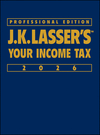Extension of Replacement period for Livestock Sold on Account of Drought
A sale or exchange of livestock (other than poultry) held by a taxpayer for draft, breeding, or dairy purposes in excess of the number that would be sold following the taxpayer’s usual business practices is treated as an involuntary conversion if the livestock is sold or exchanged solely on account of drought, flood, or other weather-related conditions. Gain from this involuntary conversion may be deferred if proceeds are reinvested within a replacement period, which is usually ends four years after the close of the first taxable year in which any part of the gain from the conversion is realized.
However, a special rule applies to livestock stock on account of drought. The replacement period is extended until the end of the taxpayer’s first taxable year ending after the first drought-free year for the applicable region. For farmers and ranchers who were subject to a four-year replacement period that was due to expire at the end of 2020, the IRS has announced the drought-affected counties in which an extension is allowed; there’s a state-by-state listing of counties (Notice 2020-74).
Credit
A tax credit directly reduces tax liability, as opposed to a deduction that reduces income subject to tax.



